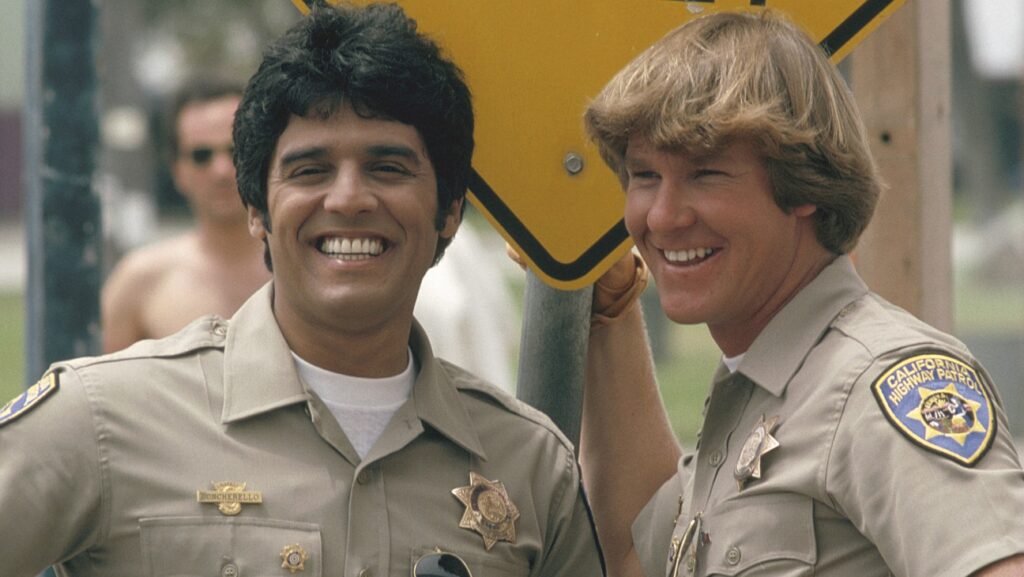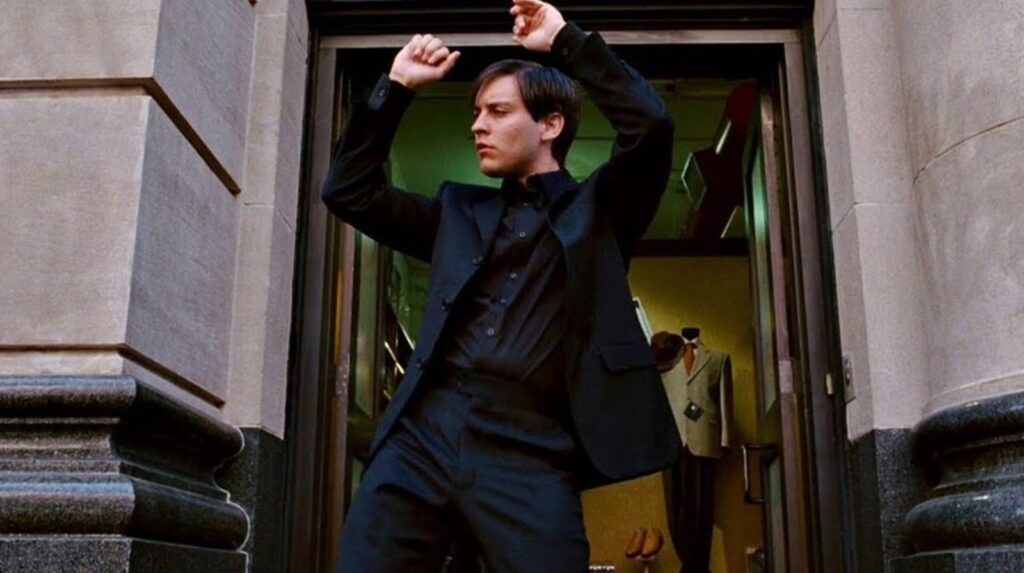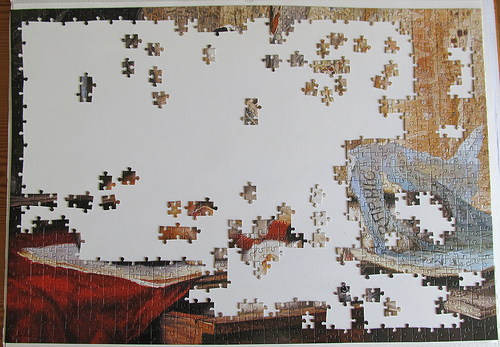How a screenwriting fatal flaw is silently killing all the latest Marvel movies.

Ant-Man crept over 100 million dollars for the 3-Day weekend (104 mil), saving a little bit of face, but not much (Black Panther 2 opened to 181 mil, Thor Love and Thunder to 144, Doctor Strange 2 to 187, and Spider-Man No Way Home to 260).
I was fully intending on seeing this movie. I love Ant-Man. I like Paul Rudd. I thought the first movie was clever and gave us something new. The character of Ant-Man himself is fun. His powers are weird in cool ways (he’s Ant-Man but he can turn giant??).
But leading up to this movie, I couldn’t escape all the bad buzz surrounding the film. I kept hearing troubling things about the storytelling. That it wasn’t really about Ant-Man. It was about his family. It was about Kang. They even made way for introducing one of the strangest characters in the Marvel Universe – something called “Modoc.”
I have a question. Why are you making movies that don’t prioritize your main characters, Marvel? The answer to that question is both a window and a mirror. It’s a window into the mind of Kevin Feige, the head of Marvel, and a reflection of the franchise’s current priorities.
The movies are no longer about the main characters. They’re about everything surrounding those characters, as well as what’s going to happen NEXT, in future Marvel movies and TV shows. You came to this movie to be entertained now? F U. You have to see the next three Marvel movies if you want to be satisfied.
Marvel may think this strategy is a winning one. But I’ve paid to see nearly every Marvel movie in theaters. The only two I didn’t were Thor 2 and Eternals.
So it says a lot that, despite being a character I enjoy, that this movie wasn’t worth my time. And if I – someone whose entire life exists around movies – wasn’t interested, you can bet your bottom dollar that a lot of casual moviegoers are feeling the same.
Four of the last five Disney-Marvel movies have received an RT score of under 75%. Two of those (Ant-Man 3 and Eternals) were under 50%. Contrast that with the five before that, none of which were lower than 75%. Clearly, the quality of these movies is dropping. And it doesn’t look like it’s going to get better. The Marvels (the Captain Marvel sequel) just got pushed back six months with rumors swirling that it’s unwatchable.
Why does this matter? Because Marvel is the movie business right now. It’s holding up the entire tent. If it crumbles, there goes the circus. And the way this relates back to Scriptshadow is that Marvel has embedded a screenwriting fatal flaw into all of its latest movies. For whatever reason, they are unaware of this blind spot. And if they don’t turn their head and see the car in the other lane soon, they’re headed for one of those Chips-level pile-ups.
Yes, I just referenced Chips. It’s Monday. Anything can happen.

So what is this flaw?
The best screenplays are simple stories told well. Clean narratives. Clear goals. Clear motivations. A limited number of characters so that the script has time to imbue those characters with adequate flaws that can be explored and resolved. It’s no accident that the best comic book movie of the last five years – Joker – used this template to a T.
Do you guys remember the first Spider-Man franchise with Toby McGuire? The first film was good. The second film was even better. And the third film was trash. Do you remember why that film was trash? Because they famously tried to do too much. Too many villains. Too experimental (I think at one point there was a musical number). Narrative was all over the place. That movie was the epitome of what happens when you try to overstuff a screenplay.

I guess that movie has now been memory-holed at Marvel. I don’t think they’re aware it exists. Because the original Spider-Man 3 has, inexcusably, become the template Marvel now uses to write their movies.
But Carson, what about Spider-Man No Way Home? That had a bunch of characters in it and it worked. True. I’m not saying the strategy can’t work. I’m just saying it’s way harder to make work. So, if you’re going to use it, you need to take the extra time required to get the script right.
This is not rocket science. If you have ten storylines in your screenplay instead of two, you will need more time to write those storylines! This is exactly what James Gunn has been saying as he ramps up DC Studios. We’re going to take that extra time and get the scripts right. The Flash looks really good even though it has a lot of stuff going on. Not coincidentally, I’ve heard that they worked crazy hard on that screenplay.
Dr. Strangelove 2 was awful. Thor Love and Bananas was awful. Ant-Man Quantum-shame-on-ya looks awful. No offense, Kevin Feige, but get your sh— together, man. What are you doing?? You’re cranking out garbage and, in doing so, you’re damaging your brand. Every Ant-Man 3 you put out makes us less confident in the next Marvel movie.
The simple truth may be that Marvel doesn’t have any stories left to tell. There have been 30 of them. Star Wars couldn’t even come up with 6 good movies. Marvel is telling three times that many and reached the point where, maybe, it can’t tell simple stories anymore. The audience wants something new, wants something different. But what if there’s nothing different left?
When you don’t have a good story to tell, you rely on gimmicks. For the regular screenwriter, gimmicks are things like writing your screenplay in the first person, or throwing a couple of forced twists in the middle of your story (the main character dies!).
For the Marvel screenwriter, gimmicks are including X-Men and Fantastic Four characters from other dimensions (Dr. Strangelove 2), or prioritizing a shocking post-credits scene over the movie itself (Eternals). Those sorts of things can be fun. But if they become more important than writing a great movie, that’s when you get into trouble. And it seems like Gimmick writing is the new strategy over at Marvel.
 Cameos like this have taken precedence over dramatically compelling plot developments.
Cameos like this have taken precedence over dramatically compelling plot developments.
The more I break screenplays and movies down, the more I realize how hard screenwriting actually is. It’s a lot like those sophisticated puzzles you used to do which had 2000 pieces. A puzzle like that takes serious amounts of time. You need to really sit there and sift through the pieces and try combinations to see if they fit, and do that day after day after day.
Then, once you get that outside edge of the puzzle figured out, you could keep filling in and filling in and filling in, until you finally put the whole thing together. Marvel movies feel like they stop working on the puzzle before that middle section is finished. The edge is in place. But the middle is still a murky mess. There are a few clumps of pieces that go together which are vaguely tossed in the middle. But it’s not enough to know what you’re looking at.

Dr. Strangelove 2 was one of the sloppiest big budget movies I’ve ever seen. And it’s because it was such a mess that when I heard even the slightest bit of rumblings about the writing in Ant-Man 3 being weak, I was out. Because I had recent proof that Marvel was getting lazy and making bad movies.
If they want to play this game where launching some dumb character named Ironheart is worth messing up the flow of their entire second act for (Black Panther 2), godspeed to you. Do that. But I’m warning you. Prioritizing the wrong things in storytelling has consequences. You did it in Dr. Strangelove 2. You did it in Black Panther 2. Now the critics are onto you. They’re not giving you breaks anymore, which is why you pulled a sub-50% RT score and the second ever “B” cinemascore for a Marvel movie. The Marvel fanbase is more forgiving. But believe me, they *will* eventually turn on you if you keep this up.

